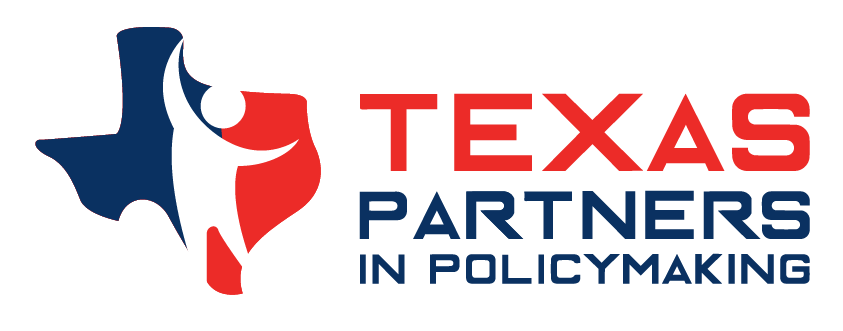
Table of Contents
Session 3 of the 2020 class of Texas Partners in Policymaking was held Nov. 15-16 in San Antonio. The primary focus of Session 3 was the topic of successful education outcomes for students with developmental disabilities (DD). During the session, state and national experts provided presentations and facilitated discussions designed to give members of the 2020 class a comprehensive view of what’s possible for students with DD in Texas.
Successful Inclusive Education
The session kicked-off Friday with a daylong presentation from Patrick Schwarz, Ph.D., about successful inclusive education strategies. Dr. Schwarz, a professor and author, covered numerous topics, including the history of education for people with disabilities, best practices for supporting all students in the classroom, and how to use an Individualized Education Plan (IEP) as a resource for support. During his interactive presentation, Dr. Schwarz facilitated a group exercise designed to prompt participants to generate innovative ideas and strategies for supporting students with disabilities in various school situations, from writing to testing to physical education. Dr. Schwarz is the president of Creative Culture Consulting LLC, young professor emeritus at National Louis University, and the author of multiple publications on inclusive education.
Section 504
Friday also included a presentation from Mary Durheim, who spoke about the laws in place to ensure students with disabilities have access to public education. Her presentation included a thorough explanation of Section 504 of the Rehabilitation Act of 1973, a nondiscrimination law that prohibits public schools from excluding students with disabilities from participating in school programs and activities. In addition to Section 504, Durheim also discussed the Americans with Disabilities Act (ADA) and the Individuals with Disabilities Education Act (IDEA) and how the three laws impact access to a free and appropriate public education (FAPE) for students with disabilities. Durheim shared Section 504-related resources from the U.S. Department of Education, including a Parent and Educator Resource Guide. In addition to being an expert on Section 504, Durheim is the chair of the Texas Council for Developmental Disabilities (TCDD) and a Texas Partners in Policymaking graduate.
IDEA
Saturday started with Gladys Cortez doing a deep dive into IDEA. Cortez talked about the purpose of IDEA – to ensure children with disabilities have access to FAPE – and she broke down the difference between IDEA Parts B (for children and young adults ages three to 21) and C (for children two years old or younger). Cortez covered the complete process for getting access to special education services. Cortez spoke at length about many of the steps in the process, including:
- utilizing Child Find to have a child evaluated,
- how prepare for an Admission, Review, and Dismissal (ARD) Committee meeting, and
- what goes into an IEP and who handles its development.
Cortez also talked about the Least Restrictive Environment (LRE) – also referred to as “inclusion,” “mainstreaming,” or “integration” – requirements covered in IDEA. So students with disabilities can be educated with their peers without disabilities, schools can use a variety of strategies to place students with disabilities in the LRE. Cortez discussed strategies parents and other education advocates can use to resolve conflicts. Class participants received the IDEA Manual published by Disability Rights Texas and The Arc of Texas.
Person-Centered Practices
Also on Saturday, Laura Buckner, M.Ed., provided the presentation “Foundations of Person-Centered Planning and Emerging Practices.” While talking about person-centered planning – which is a framework to support people with disabilities and others to live their lives as they define them – Buckner emphasized the core concepts of distinguishing between what’s important for a person and what’s important to a person. Services usually make sure that what’s important for a person, like their health and safety, are covered. However, what’s important to a person, like having control over their life, being in relationships, having things to do, etc., is what will help people have a better quality of life. Buckner is a community training coordinator for the Texas Center for Disability Studies at The University of Texas at Austin. She is also a graduate and a former program coordinator of Texas Partners in Policymaking.
Higher Education
Dr. Anne Ginnett’s presentation, “Higher Education: Forging a New Path,” covered various aspects related to students with disabilities participating in higher education. Dr. Ginnett discussed the legislation that has impacted higher education – Section 504, the ADA, and the ADA Amendments Act of 2008 – and who is protected by the legislation. Dr. Ginnett talked about the typical accommodations that are provided for students with disabilities who participate in higher education settings. Some of the accommodations include registering early for classes, recording lectures in the classroom, and allowing additional time to complete exams. Dr. Ginnett shared the story of how her team successfully advocated for the passage of Texas House Bill 3165 which allowed for the accreditation of an associate degree program offered by the Lone Star College System. The program, lifePATH, gives adult students an opportunity to be successful in business, academics, and personal relationships.
Class Projects and Next Session
All participants in Texas Partners in Policymaking will complete a project that demonstrates that they acquired the necessary advocacy and leadership skills by participating in the program. Projects will focus on developing new partnerships, impacting policy and systems change, and/or creating an informational resource. During Session 3, members of the 2020 class finalized plans for the projects they’ll be working on for the remainder of the training year.
Session 4 will be held in January and will focus on issues related to housing and employment.
